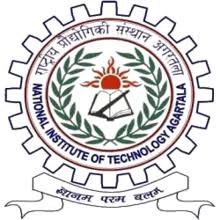The National Institute of Technology Meghalaya (NIT Meghalaya) is one of the 31 NITs in India and is recognized as an Institute of National Importance. Established in 2010, NIT Meghalaya has grown steadily, offering a range of undergraduate, postgraduate, and doctoral programs in engineering, science, and technology. Here is a detailed breakdown of its courses, fees, placements, and admission process for 2024.
1. Courses at NIT Meghalaya
NIT Meghalaya offers the following programs:
A. Undergraduate Courses (B.Tech)
NIT Meghalaya offers a 4-year Bachelor of Technology (B.Tech) program in the following disciplines:
- Computer Science and Engineering (CSE)
- Electrical and Electronics Engineering (EEE)
- Electronics and Communication Engineering (ECE)
- Civil Engineering
- Mechanical Engineering
B. Postgraduate Courses (M.Tech)
NIT Meghalaya offers Master of Technology (M.Tech) programs in the following specializations:
- Computer Science and Engineering
- VLSI (Very Large-Scale Integration)
- Power & Energy Systems
- Communication Engineering
- Structural Engineering
- Fluid and Thermal Engineering
- Materials Science & Engineering
C. M.Sc. Programs
NIT Meghalaya offers Master of Science (M.Sc) programs in:
- Physics
- Chemistry
- Mathematics
D. Doctoral Programs (Ph.D.)
NIT Meghalaya offers Ph.D. programs across various departments, including:
- Engineering and Technology (all B.Tech disciplines)
- Sciences (Physics, Chemistry, Mathematics)
- Humanities and Social Sciences
2. Fee Structure for 2024
The fee structure at NIT Meghalaya varies based on the course and category of the student (General/OBC/SC/ST/PwD). Below is the general outline of the fees:
A. B.Tech Fees
- Tuition Fee: ₹62,500 per semester
- Hostel Fee: ₹6,000 per semester (excluding mess charges)
- Other Fees: ₹7,000 to ₹8,000 per semester (library, examination, sports, etc.)
- Mess Charges: Approximately ₹3,000 to ₹4,000 per month
B.M.Tech Fees
- Tuition Fee: ₹35,000 per semester
- Hostel Fee: ₹6,000 per semester (excluding mess charges)
- Other Fees: ₹7,000 to ₹8,000 per semester
- Mess Charges: Approximately ₹3,000 to ₹4,000 per month
C. M.Sc. Fees
- Tuition Fee: ₹15,000 per semester
- Hostel Fee: ₹6,000 per semester (excluding mess charges)
- Other Fees: ₹7,000 to ₹8,000 per semester
- Mess Charges: ₹3,000 to ₹4,000 per month
D. Ph.D. Fees
- Tuition Fee: ₹15,000 per semester
- Hostel Fee: ₹6,000 per semester
- Other Fees: ₹7,000 to ₹8,000 per semester
- Mess Charges: ₹3,000 to ₹4,000 per month
Financial assistance such as scholarships and fee waivers are available for students from economically weaker sections, SC/ST categories, and students with disabilities.
3. Placements at NIT Meghalaya
NIT Meghalaya has a well-established placement cell that regularly liaises with companies to provide job opportunities to students. Here’s an overview of placements in recent years:
A. Placement Statistics
- Highest Package (2023): ₹52 LPA (Lakh Per Annum)
- Average Package (2023): ₹11 LPA
- Median Package (2023):₹9 LPA
- Placement Percentage (2023): 85%
B. Major Recruiters
Top companies from various sectors such as IT, electronics, core engineering, consulting, and finance visit NIT Meghalaya for campus placements. Some of the notable recruiters include:
- Microsoft
- Amazon
- Tata Consultancy Services (TCS)
- Cognizant
- Wipro
- L&T
- Infosys
- IBM
- Mahindra & Mahindra
- Indian Oil Corporation Limited (IOCL)
C. Internship Opportunities
NIT Meghalaya encourages students to participate in internships, particularly during their pre-final years. A pre-placement offer (PPO) is frequently the result of these internships. Some of the companies offering internships include:
- Flipkart
- Qualcomm
- Reliance Industries
- Samsung
4. Admission Process for 2024
A. B.Tech Admissions
- Eligibility: Students must have completed their 10+2 with Physics, Chemistry, and Mathematics as mandatory subjects. They must also qualify for the JEE Main examination.
- Selection Process: Admission is based on the JEE Main score, followed by participation in the JoSAA/CSAB Counseling process.
- Reservation: NIT Meghalaya follows the reservation policy of the Government of India, which includes quotas for SC, ST, OBC, PwD, and EWS candidates.
- Documents Required: JEE Main scorecard, 10+2 mark sheet, category certificate (if applicable), domicile certificate, and identification proof.
B. M.Tech Admissions
- Eligibility: Candidates must have a B.Tech degree in a relevant discipline with a valid GATE score.
- Selection Process: Admission is based on the GATE score, followed by participation in the CCMT counseling process.
- Reservation: Same as B.Tech, with quotas for reserved categories.
- Documents Required: GATE scorecard, B.Tech mark sheet, category certificate (if applicable), and identification proof.
C. M.Sc. Admissions
- Eligibility: Candidates must have a bachelor’s degree in the relevant science discipline with a minimum of 60% aggregate marks.
- Selection Process: Admission is based on the candidate’s score in the Joint Admission Test for M.Sc. (JAM), followed by counseling.
- Reservation: Similar to B.Tech and M.Tech, with reserved seats for SC, ST, OBC, PwD, and EWS candidates.
D. Ph.D. Admissions
- Eligibility: Candidates must have a Master’s degree (M.Tech/M.Sc) in a relevant field with a minimum of 60% marks or a CGPA of 6.5.
- Selection Process: Admission is based on the written test and interview conducted by NIT Meghalaya.
- Reservation: As per Government of India guidelines for reserved categories.
5. Frequently Asked Questions (FAQ)
Q1: Is NIT Meghalaya a good institute for engineering?
- Yes, NIT Meghalaya is recognized as an Institute of National Importance. It offers excellent academic programs, has well-equipped labs, and provides good placement opportunities.
Q2: What is the cutoff for JEE Main for NIT Meghalaya?
- The cutoff for NIT Meghalaya varies based on the branch and category. For general category students, the cutoff typically ranges between 20,000 and 40,000 in the JEE Main All India Rank, depending on the branch.
Q3: Does NIT Meghalaya offer any scholarships?
- Yes, NIT Meghalaya offers scholarships based on merit, financial need, and category (SC/ST/OBC). There are also government scholarships available for economically weaker students.
Q4: What is the student-to-faculty ratio at NIT Meghalaya?
- The student-to-faculty ratio at NIT Meghalaya is approximately 13:1, which ensures personalized attention and support for each student.
Q5: How are the hostel facilities at NIT Meghalaya?
- NIT Meghalaya provides separate hostels for boys and girls. The hostels are well-maintained with facilities such as Wi-Fi, common rooms, sports equipment, and hygienic mess services.
Q6: What is the placement record for Computer Science at NIT Meghalaya?
- Computer Science and Engineering (CSE) has one of the best placement records at NIT Meghalaya, with most students securing high-paying jobs in top IT firms like Microsoft, Amazon, and Google. The average package for CSE graduates is around ₹12 LPA.
Q7: Can international students apply to NIT Meghalaya?
- Yes, international students can apply to NIT Meghalaya through the DASA (Direct Admission of Students Abroad) scheme.
Q8: How is the campus life at NIT Meghalaya?
- Although the institute is relatively new, campus life at NIT Meghalaya is vibrant. There are numerous student clubs, cultural events, and sports activities that contribute to an enriching student experience.
Q9: Does NIT Meghalaya provide opportunities for research?
- Yes, NIT Meghalaya offers excellent opportunities for research in various fields of engineering and science. The institute has collaborations with national and international institutions, and students are encouraged to publish papers and participate in conferences.




